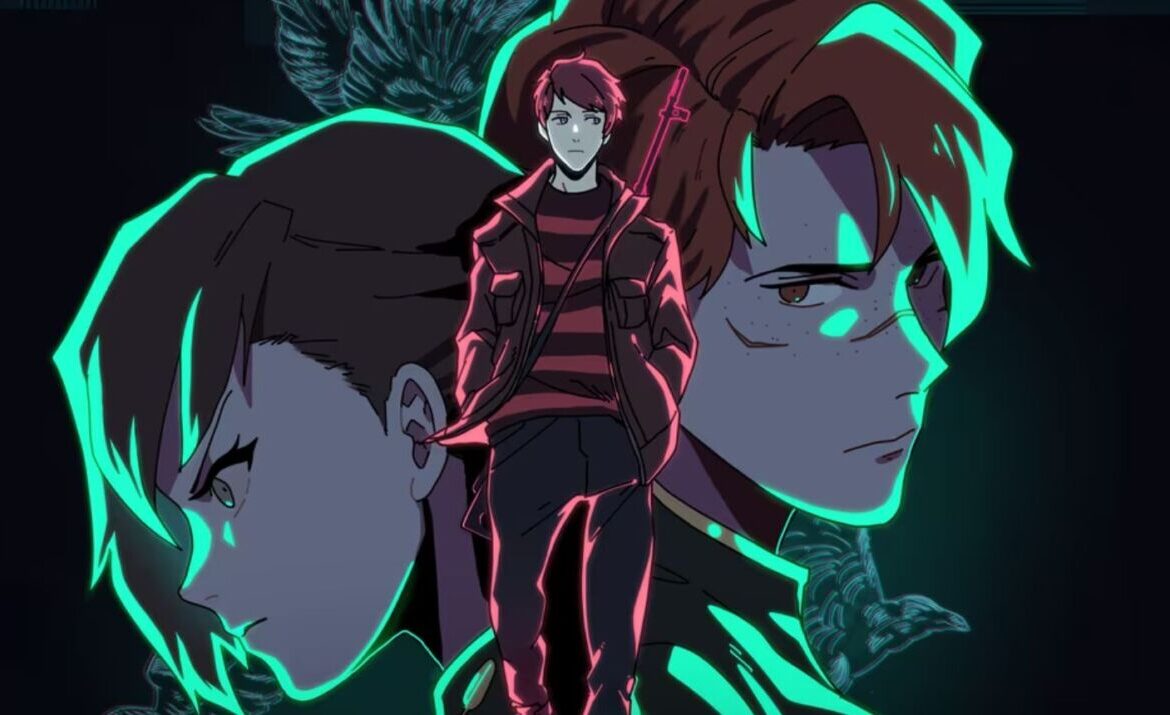
Director Steven Spielberg once said, “Every war movie, good or bad, is an anti-war movie.” Can the same be said about games? Titles like This War of Mine and Spec Ops: The Line sure make a compelling case. Unfortunately, Long Gone Days is an ‘anti-war’ visual novel/RPG that’s so aloof to the horrors of war that it entirely fails to conjure the same effect.
In Long Gone Days, you play as a sniper named Rourke. Raised within an underground nation called The Core, he’s a soldier primed for combat from a young age. The game begins with his military debut on the surface where he and his brigade take on the uniforms of the Polish armed forces under the guise of giving them support in a battle in Russia. In actuality, Rourke is unknowingly at the centre of a violent false flag operation, orchestrated as part of The Core’s plot to assert their power globally.
When Rourke comes to the unsettling realisation that there are civilians at the other end of his weapon, he and a field medic decide to defect. They flee The Core and attempt to intercept the organisation’s conspiracy. As the pair travels across Russia, Germany, and Poland, they accumulate a party to assist them in combat and help them bypass language barriers.

Long Gone Days is captivating on paper. Its gritty plot, intricate pixel art, and genre-blending all point to this being a release well worth your time. Once you’re playing it though, there’s just something incredibly off-kilter about the whole experience.
For example, in the first chapter, you navigate petty beef with your new medic pal and solve puzzles while the corpses of village kids haven’t even gone cold. It feels deeply uncomfortable and insidious, yet long-term it lacks the appropriate emotional resonance. A generous, overly analytical part of myself wants to imagine this is some attempt at a meta-narrative on the dissociative symptoms of PTSD. That part of myself is probably wrong. Long Gone Days is just tonally bizarre.
What makes it so difficult to pinpoint why Long Gone Day’s tone fails is that it’s not a result of a specific failure but instead a cumulative problem.

As a visual novel, the main problem is obviously a textual one. Long Gone Days’ narrative tackles themes like fascism, eugenics, and sex trafficking with an uncanny degree of disconnection. It simultaneously offers a sanitised ‘dystopian YA novel’ approach to revolution while having you commit war crimes in the first ten minutes of playtime.
Despite the egregious acts committed in Long Gone Days, there’s no real violence and as a result, the stakes are totally abstracted. You aim down your sights and shoot a person in the head only to have them drop to their knees melodramatically.
Perhaps this pantomime of violence is why character emotions are expressed in such a non-committal and platitudinal way. Each of them just feels exceedingly flat. At one point, a character in the game mocks the protagonist’s party by boiling down each of their personalities to a singular, simplified trait. How evil must I be to have entirely agreed with them?

Despite the anime-inspired art style, every character’s portraits veer away from the kind of exaggerated expressions that would help to convey emotional extremity. Rourke makes the same ‘slightly miffed’ face seeing a child killed in cold blood that I would make dropping a slice of toast at breakfast. Unfortunately, I don’t look that handsome while I do it.
Story aside, I’d be a hypocrite to deny the fun of a war game. There’s plenty of titles that present shallow depictions of the life of a soldier but aren’t aiming to achieve more than that. So, is Long Gone Days fun? Eh, in some ways. The exploration sections are fulfilling, and there’s plenty of errands like fetch quests you can do to distract you from the plot.
During combat, there’s a V.A.T.S.-esque body part targeting mechanic which is a pleasant novelty. However, the simplicity of battles otherwise strips away the real joy of slow-paced, turn-based RPGs: strategising. Clunky UI makes items difficult to keep track of but you’ll rarely struggle without them. You can spam the same attack pattern every battle and fare just fine. The sniping sections are an FPS-inspired innovation that do diversify combat but the system is incredibly underutilised.

To avoid ending on a bum note, it’s worth running through where Long Gone Days shines. Developer BURA has been working on the game since 2015 and in terms of detail, this effort definitely shows. Environments are fabulously intricate and the sprite animation is fluid and well-executed. The language barrier mechanic is another strong point. You’re unable to communicate with locals until you have an interpreter, leaving you locked out of certain side quests until the main story allows it. This system is genius and one I’d love to see utilised more in games, particularly in RPGs.
Long Gone Days will undoubtedly find its audience with a crowd that has a penchant for The Hunger Games series and cute anime boys. Unfortunately, it’s a game that’s unsettling for all the wrong reasons, and suffers from combat that is often sluggish and unengaging. So, I can’t imagine agreeing with that crowd anytime soon.
A Steam key was provided by PR for review purposes
Some of the coverage you find on Cultured Vultures contains affiliate links, which provide us with small commissions based on purchases made from visiting our site.


